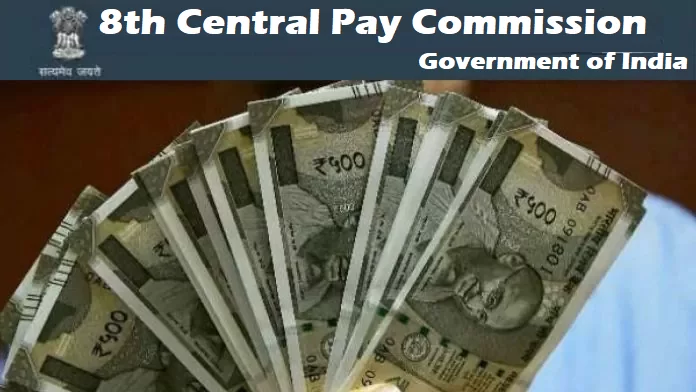The central government has approved the formation of the 8th Pay Commission. In such a situation, many questions are arising in the minds of the people. Especially regarding dearness allowance and dearness relief.
It is being said that as soon as the 8th Pay Commission is implemented, DA and DR will be reduced to 0. Because there was a special provision in the 5th Pay Commission, under which dearness allowance (DA) and dearness relief (DR) were more than 50% and were automatically included in the basic salary or basic pension. This was done to simplify the salary structure, but this was not the case under the 6th Pay Commission and 7th Pay Commission.
What was the provision under the 7th Pay Commission?
In the 6th and 7th Central Pay Commission, DA was not merged in the basic salary. Rather, at the time of implementation of the recommendations of the new Pay Commission, the salary is decided on the basis of the fitment factor. In such a situation, dearness allowance is not included in it at this time. Dearness allowance is added in the future or on the basis of the recommendation of the Pay Commission.
Keeping in view the rising inflation over time, the central government revises the dearness allowance for employees and pensioners every six months. It is calculated in the salary of employees from January and July. The next increase in dearness allowance is likely to be announced in March 2025.
Then will DA become ‘0’ from 50%?
This dearness allowance is decided on the basis of basic salary or pension. Dearness allowance is a major part of the salary of central employees. There is no such provision in the current pay commission that if DA is more than 50%, it will be automatically included in the basic salary and it will be made ‘0’. Similarly, it is also about dearness relief.
What is the fitment factor? Understand it with an example.
The fitment factor is something on the basis of which the salary of government employees and pension of pensioners is calculated. It is implemented on the basis of the recommendation of the commission. Example – If someone’s basic salary is 20 thousand and the fitment factor 2.5 is recommended in the 8th Pay Commission, then his basic salary will increase to 50 thousand. Similarly, pension will also be calculated.
When will the 8th Pay Commission be implemented?
he central government often implements a new pay commission after an interval of 10 years to revise the salaries of employees. The 7th Pay Commission was implemented in the year 2016. The 6th Pay Commission was implemented in the year 2006. Similarly, the 4th and 5th Pay Commissions were also implemented at an interval of 10 years each. The government has also asked the 8th Pay Commission to submit its report by 2026. In such a situation, it is expected that it will also be implemented by the year 2026.
It is worth noting that after the cabinet meeting held on Thursday under the chairmanship of Narendra Modi, Ashwini Vaishnav said that the formation of the 8th Pay Commission for central employees and pensioners has been approved. The formation of the 8th Pay Commission will benefit about 50 lakh central government employees and 67.95 lakh pensioners. Till now the Seventh Pay Commission is applicable in the country, whose tenure is till 31 December 2025.
Related Articles:-
- Income tax New Bill: New Income Tax Bill to simplify taxation in India, Likely to be introduced in the budget session of 2025
- Highest FD rate: These banks are giving the highest interest rate on FD, read this news before investing
- IMD Weather ALERT! There will be heavy rain with thunder and lightning in these districts of the state in the next 48 hours
- RBI has given relief to crores of users, banking calls will come only from these 2 numbers
- Indian Railways gave permission to Vande Bharat Express to run on this route, Check route & more Details













